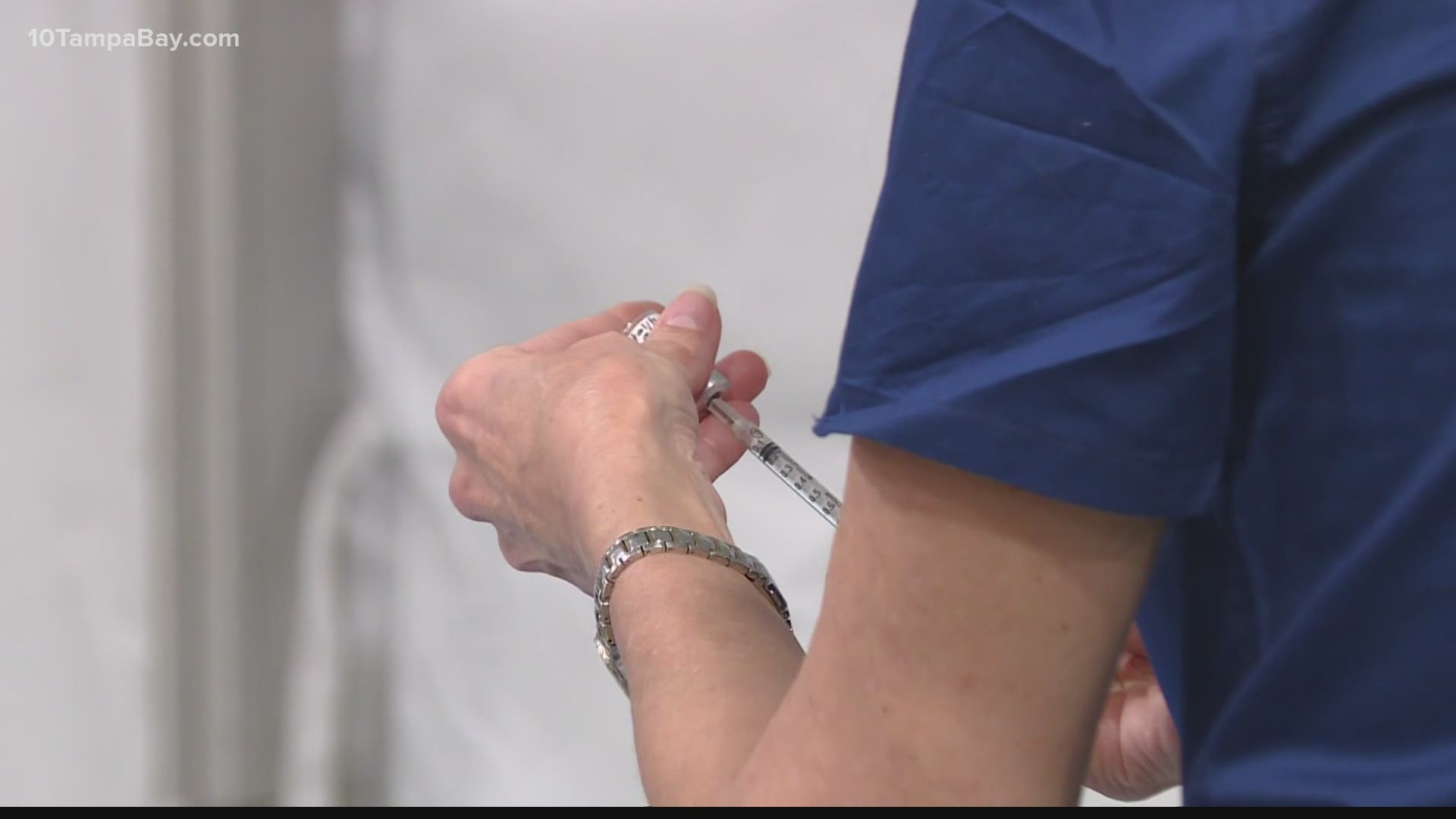TAMPA, Fla. — Vaccine rollout in Florida is already plagued with a number of issues for people: frustration booking an appointment, confusion about registering for a second dose and long lines at vaccine sites.
There are even more barriers to vaccine access for communities of color, according to Dr. Julie Morita, the Executive Vice President of the Robert Wood Johnson Foundation.
"Things were ramped up so quickly, a lot of the focus was making the appointment accessible by internet and drive up vaccination sites, but it wasn't taking into considering does everyone have high-speed internet or does everyone have a car?" she said.
Communities of color have been more negatively impacted by COVID-19, for a number of reasons: underlying health conditions, front-line or essential work that doesn't allow social distancing, lack of healthcare access and dense living conditions are just a few.
In Florida, we've learned that people of color are impacted by COVID-19, but not receiving protection in the form of a vaccine at the same rate as their white counterparts.
According to the Kaiser Family Foundation, as of Feb. 1, Black Floridians make up 6 percent of vaccinations. However, they account for 16 percent of COVID-related deaths. As a whole, Black people make up 16 percent of Florida's total population.
White people make up 76 percent of Florida vaccinations but only account for 55 percent of deaths. And, 75 percent of Florida's total population is white.
Before vaccines become accessible to more people, not only seniors, Morita says some things need to change in order to make the process of distribution more equitable for everyone.
"Are the hours for vaccine sites at times when people who are working nine to five? We need to have extended hours, including weekends so people can actually make it. We need to have walk-up options and appointments need to be able to be made over the phone," Morita explained.
She also says there's a critical lack of data when it comes to who is being vaccinated. CDC’s Mortality and Morbidity Weekly Report noted that America has race and ethnicity data for only about half of the vaccinated population. We need the data to see if people at greatest risk are being protected, and if they're not, we need to know how to change our process in order to do that.
There are strides being made in Florida to make vaccines more accessible, with the opening of FEMA vaccination sites. Hours will be extended from 7 a.m. to 7 p.m. and include weekends, addressing one access barrier. The site will be located at the Tampa Greyhound Track and open the first week of March.
- J&J's single-shot COVID vaccine get FDA emergency use authorization
- Biden hails House passage of $1.9T virus bill, now to Senate
- Rays 101: Your ultimate guide to jumping on the bandwagon this season
- Hospital employee charged with stealing more than $900 from COVID-19 patient's wallet, police say
- AP sources: Feds pinpoint suspect in officer's Capitol riot death
- '40,000 cases daily': Florida scientists say U.K. variant could spark a 4th wave of COVID-19 infections in the state
►Breaking news and weather alerts: Get the free 10 Tampa Bay app
►Stay In the Know! Sign up now for the Brightside Blend Newsletter

